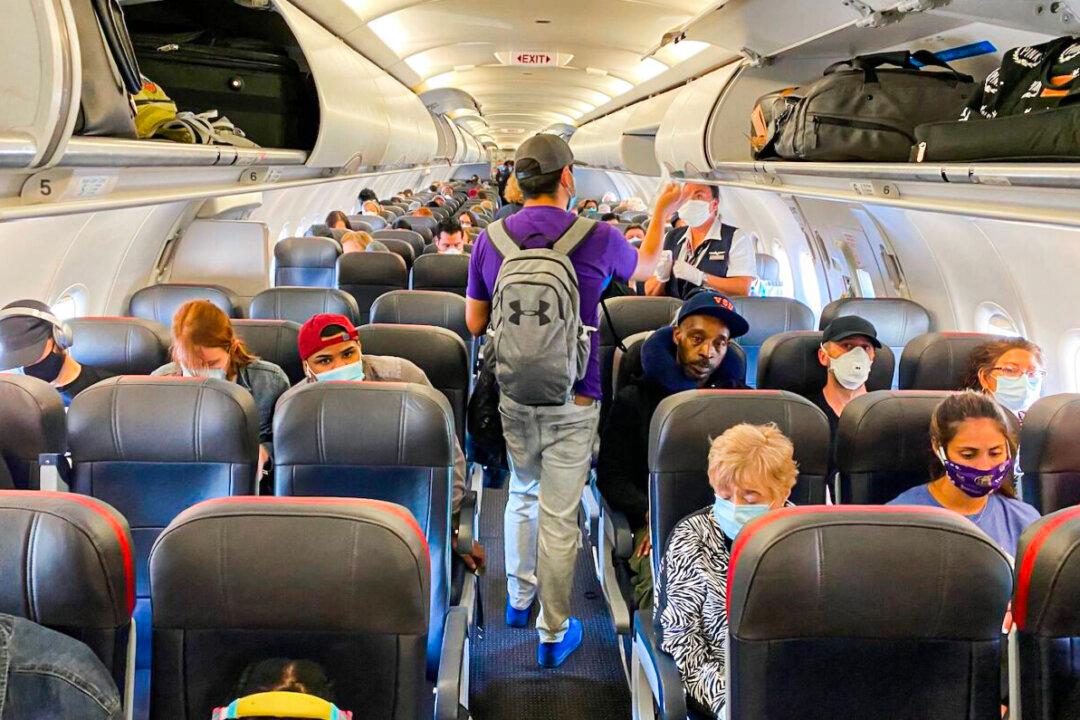The number of “unruly passenger incidents” onboard flights rose in the wake of the COVID-19 pandemic, increasing by nearly 40 percent year-on-year in 2022, according to the International Air Transport Association (IATA).
In a report published on June 4, IATA said that the latest data show there was approximately one “unruly incident” reported for every 568 flights in 2022, up from one in every 835 flights reported in 2021.




